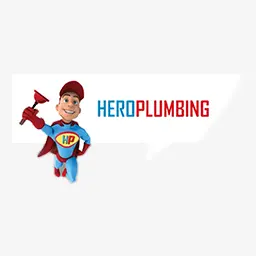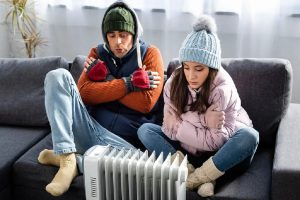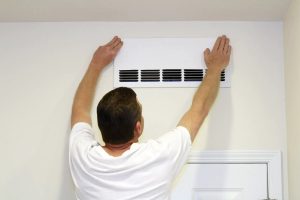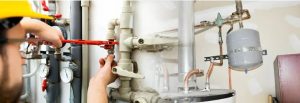Table Of Contents
- The Advantages of Using Vent-Free Heating Products
- The Different Types of Vent-Free Appliances Available
- Are Direct Vent Heating Appliances Efficient?
- Types of Pollutants Released When an Unvented Heater is Used
- Potential Risk of Inhaling Carbon Monoxide
- The Harmful Effects of Carbon Dioxide
- What Are the Hazards of Nitrogen Dioxide?
- Is Water Vapour Harmful to your Health?
- Which is the Best Type of Heater?
- The Importance of Taking Care of your Winter Season Gas Heater
- Let Professionals Service your Heater
- Safety Measures for your Gas Heater
- Carbon Monoxide Could be Responsible for your Sickness
- Using a Qualified Gasfitter is the Safest Option
There are different ways of designing heating appliances. A type that has no vent, for example, is called a vent-free appliance. This appliance has no chimney vent and is usually placed within the space that is heated. Several combustion products or air pollutants get released into the space that is heated instead of being released outdoors via a chimney. Examples of such fuels include LPG (propane) or natural gas.
The main advantage of using vent-free gas heating devices is the convenience they provide. However, they are also known to cause a reduction in the quality of indoor air, which is a huge point of concern. There are regulations for the use of unvented heaters stipulated in state and local codes.
Gas heaters, like other types of heaters, are designed primarily to produce heat for warmth. They also produce combustion products, which can be harmful to human life.
The Advantages of Using Vent-Free Heating Products

There is no need for installation of a chimney or a vent pipe and as such, vent-free heaters are deemed easy and quite inexpensive. Most do not rely on electricity to run, can be operated when needed including times that you need to get heat going in your home at short notice.
Most are efficient and so easy to use. Also, gas is an inexpensive fuel alternative in most parts of the country, which makes these devices well worth having. These heaters easily create a comfort zone in any one room and this way, heating costs get reduced.
The Different Types of Vent-Free Appliances Available
There are small and portable types that you can use in single rooms and these are designed to be used in cases where there is need for emergency heating. However, they may still be used as a permanent heating source in the home. With the inclusion of an optional blower kit and some ductwork, it is possible to make them heat two or more additional rooms.
They come in different styles and are packaged as cabinet-mounted, fireplaces, and wall-mounted units. They also have different types of flame patterns including blue flame, yellow flame, infrared and glowing logs. Most average just under 5,000 Btu/hour, but some are rated as 38,000 Btu/hour.
Are Direct Vent Heating Appliances Efficient?
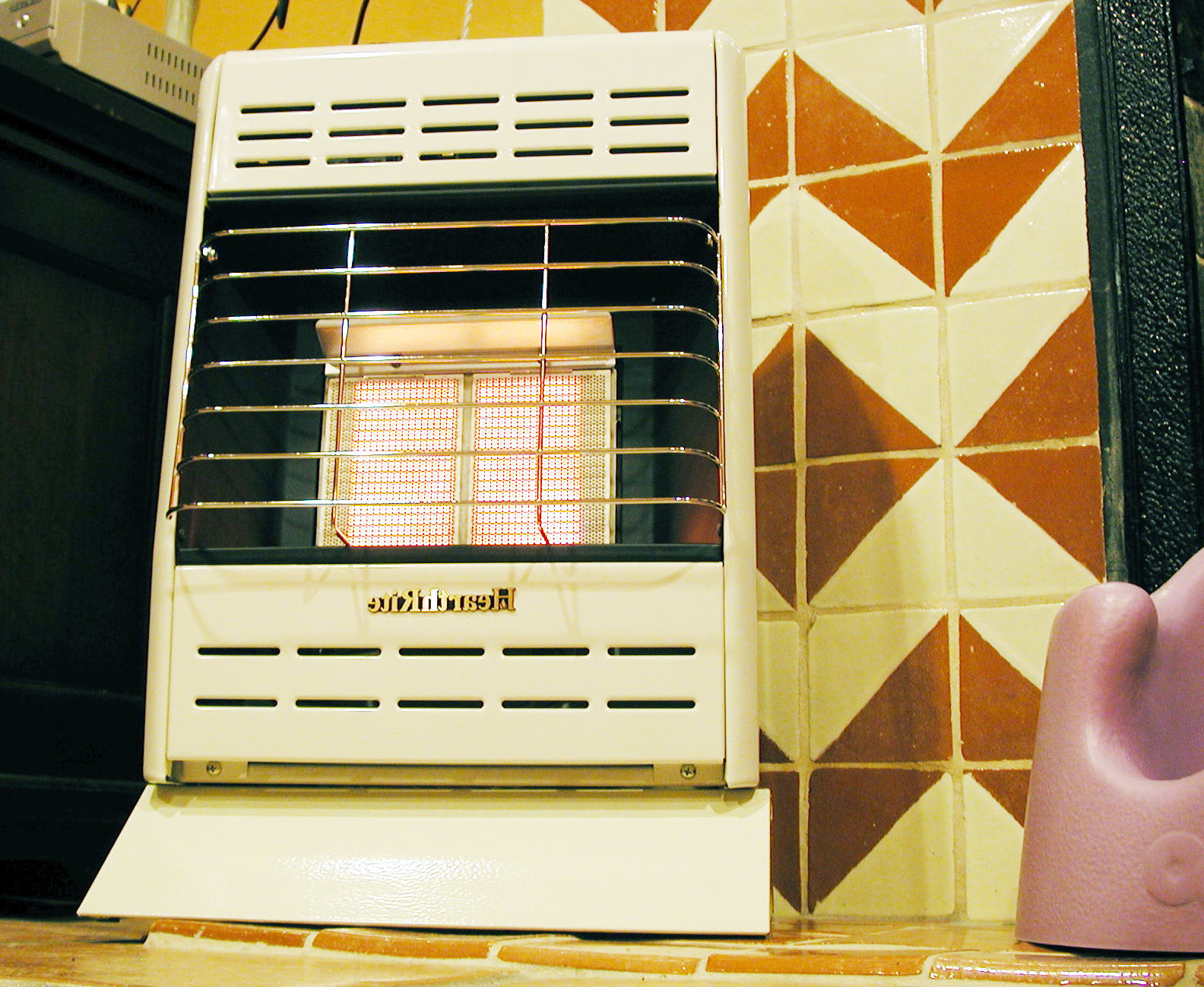
The flame from these devices can burn with more than 99 percent efficiency. However, there is a downside to their use. Not all the heat produced is made available for use. Just about 9.6 percent of the total heating energy is released from the combustion of hydrogen leading to the production of water vapor. To recover this heat, the water has to be condensed.
If the heater does not have a vent, the water vapor will condense on the room surfaces. This is a serious problem and should be avoided at all costs as it can lead to the growth of mould. When mould forms, it causes wood rot in the house, paint on the walls to peel off, and can even lead to plaster failure. You must prevent water vapor from condensing so that wet windows and walls may stay protected.
The maximum efficiency of the heater is reduced to about 90.4 percent. Unvented heaters will cause pollutants to be released into the house. It is necessary to have outside air come in one way or another to dilute them and replace the contaminants.
The ventilation that is required to reduce the pollutants to the level of concentration that may be tolerated will depend on how tight the building is as well as the health of the building’s occupants.
Types of Pollutants Released When an Unvented Heater is Used
There are different types of combustion products that are formed when gas burns. Some of them are a result of incomplete combustion of the gas and can be quite harmful.
- Carbon dioxide (CO2) is a non-toxic gas that is formed and released when there is complete combustion of a carbon-based fuel
- Carbon monoxide (CO) is a toxic gas formed when incomplete combustion takes place
- Nitrogen dioxide is also released and it equally toxic
- Water vapor
Potential Risk of Inhaling Carbon Monoxide
Carbon monoxide is quite dangerous to your health because the gas is colourless, tasteless, odourless and non-irritating. As a result, a lot of people, including animals, have died from carbon monoxide poisoning. There are times when death may not result from poisoning due to the gas but permanent damage to the brain or other vital organs of the body may occur.
More people are poisoned by carbon monoxide than all the other types of poisons put together. When there are proper adjustments and maintenance, only low amounts of carbon monoxide are produced by gas heaters.
Incomplete combustion due to lack of air has been identified as the cause of carbon monoxide poisoning resulting from the use of unvented heaters.
The issue of incomplete combustion has been taken care with the help of Oxygen Depletion Sensors (ODS), which are now found installed in new heaters. However, these sensors do not give any feedback relating to incomplete combustion that may arise from improper gas pressure. Carbon monoxide testing for unvented heaters should therefore be of top priority.
The Harmful Effects of Carbon Dioxide
Carbon dioxide is a toxic gas when produced in large amounts with nothing to dilute its concentrations. When released and allowed to fill up an enclosed space, it can lead to sleepiness, cause headache and also contribute to the stuffy feeling often experienced in closed houses. All types of unvented gas heaters generate carbon dioxide in large concentrations even when they burn properly.
What Are the Hazards of Nitrogen Dioxide?
Nitrogen dioxide is quite a toxic gas, even when produced in low concentrations. It is capable of causing upper respiratory irritation which can lead to cough, headache, sore throat, nausea, and vertigo.
A small amount of NO2 is usually produced wherever you have a burning flame. The amount that is produced will depend on the design and burner size of your heater. The rising cases of asthma during the winter period has been linked to the release of nitrogen dioxide.
Is Water Vapour Harmful to your Health?
The presence of water vapour does not cause any harm. Therefore, you have nothing to worry about if your heater generates water vapour.
Which is the Best Type of Heater?
There are different types of heaters and include direct-vent wood stoves, vented gas heaters, and electric heaters. All of these are capable of generating enough heat to keep a room warm for a long time. Residential and commercial gas heaters seem to be what most people like and this is for various reasons, which include ease of use and the great economic value they give.
The Importance of Taking Care of your Winter Season Gas Heater
The need for a gas heater is best felt during the winter and the reason is that this is the period when heat is needed the most of all the months of the year. It can be quite frustrating when your heater breaks down in the winter.
For you to ensure your gas heater is up and running throughout the year, service it once at the least in every couple of years of use with the help of a professional.
Let Professionals Service your Heater
There are some devices at home that you can fiddle with when they are faulty and end up finding a solution to them all by yourself. There are others that you need to invite a professional to take care of them for your safety and that of the device.
You should take time to look for a qualified gasfitter in just about the same way you will seek out a local tradesperson online or offline. You should verify the license of the gasfitter before you allow them to handle your gas heater. It is the qualifications gasfitters have that will assure you that they can manage the task at hand.
Safety Measures for your Gas Heater
There are some gas heater safety measures you need to be aware of always. By taking note of these measures, you will be able to prevent it from getting damaged.
- Ensure there is a safety alert issued out for the use of your gas heater.
- Avoid making use of exhaust fans or kitchen range hoods with your heater at the same time. A negative pressure environment may be created as a result of this which can, in turn, lead to carbon monoxide getting drawn into spaces where people are living.
- Make sure not to leave your gas heater on for long periods or overnight.
- Get a carbon monoxide alarm installed as a safety measure when you make use of your heater.
- Check to see the number of years you have used your heater. If your gasfitter confirms it to be too old, it is better to look for a replacement as soon as possible.
- Do not bring indoor, portable gas appliances that are meant for outdoor use.
Carbon Monoxide Could be Responsible for your Sickness
There could be a gradual build-up of carbon monoxide in your home which can cause you to fall sick after some time, lead to some health complications, or even death.
Some of the symptoms that are seen in this kind of situation are not that different from cold symptoms which are common during winter. In other words, it may be a little bit difficult even for a medical doctor to diagnose you correctly if you are suffering from carbon monoxide poisoning.
The following are symptoms that may occur as a result of carbon monoxide poisoning:
- Headaches
- Dizziness
- Feeling sick or becoming nauseous
- People and their pets falling sick at the same time
- Feeling sickly when you are at home but healthier when you are outdoor
Using a Qualified Gasfitter is the Safest Option
Getting a qualified gasfitter is highly recommended when you have issues to contend with on your gas heater. However, you need to understand that different types of licenses cover what type of work these professionals may do. It is therefore a wise decision to make when you request to see the ID card of the professional you have invited so you can know they are qualified to take care of your gas heater.




